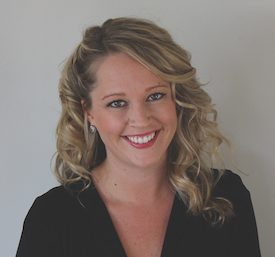Under the Obama administration, the Federal Housing Administration ramped up its enforcement of FHA lending policies, teaming with the Department of Justice to pursue legal action against lenders who committed underwriting errors in their handling of FHA loans.
And while the current administration has publicly stated its intention to back off this practice, it remains unclear what, if any, penalties FHA lenders may face for supposed False Claims violations.
Just last week, Quicken Loans finally resolved its four-year battle with the government regarding allegations that it violated the False Claims Act, agreeing to pay $32.5 million to make it all go away without admitting any wrongdoing or tweaking their practices in any way.
Some might view this resolution as a sign that the practice of aggressively pursuing False Claims violations has come to an end – but has it?
Many lenders have pulled away from FHA lending in recent years, significantly weakening the program – something the agency has recently taken steps to address by clarifying underwriting rules.
But according to a recent blog post from researchers at the Urban Institute, the FHA has not gone far enough to quell lender fears about getting back into the business of FHA lending.
The problem? Not enough clarity regarding how FHA’s rules will be enforced or, specifically, what the DOJ will do about enforcing the rules.
“It’s critical for FHA to clarify both what lenders are certifying to and what FHA will do if they make a mistake,” the researchers write. “The problem is that it doesn’t address what DOJ will do if a lender makes a mistake, thus leaving unaddressed the biggest, most uncertain source of liability of all: the False Claims Act.”
In fact, the researchers go so far as to assert that FHA’s recent attempt at clarification serves only to expand the DOJ’s ability to go after lenders for False Claims violations. And this will do nothing to prompt more lenders to get back into the business of FHA loans.
“In the face of that remaining uncertainty, it is hard to imagine that any lender that pulled back from FHA over enforcement uncertainty would return in response to these recent changes,” the researchers write. “To expand their proposal in a way that would accomplish such a market shift, FHA would need to either narrow what a lender certifies to or narrow the kind of mistakes that can give rise to liability under the False Claims Act.”
Revising the language to allow for clauses like “to the best of the mortgagee’s knowledge” would help eliminate the risk of damages for small mistakes of which lenders were unaware and that have no bearing on FHA’s risk, the researchers say.
But, of course, the solution isn’t as simple as all that. These things never are.
“The challenge with this approach, however, is that the changes needed are numerous and it only takes one poorly placed ambiguity to leave us roughly where we started,” they write. “Given the now long record of differing interpretations that lenders, FHA and DOJ all bring to key passages, there is reason to be skeptical that any revisions would provide adequate clarity.”
So, the Urban Institute suggests a method they view as perhaps more effective: tying False Claims Act liability to the taxonomy by outlining specific categories of more severe mistakes that could lead to legal action, and limiting False Claims violations only to these categories.
“By integrating False Claims Act liability into the taxonomy, FHA and DOJ would finally create a more coherent, integrated, and comprehensive enforcement regime and leave lenders with an incentive to control their legal risk by improving their quality control, rather than by abandoning many of the very borrowers FHA is designed to serve,” the researchers state.
“The bottom line is that if the administration wants to attract back into the FHA market those lenders scared off by uncertainty over how FHA’s rules are enforced, it will have to provide some certainty over when and how the False Claims Act will be used,” they conclude.






